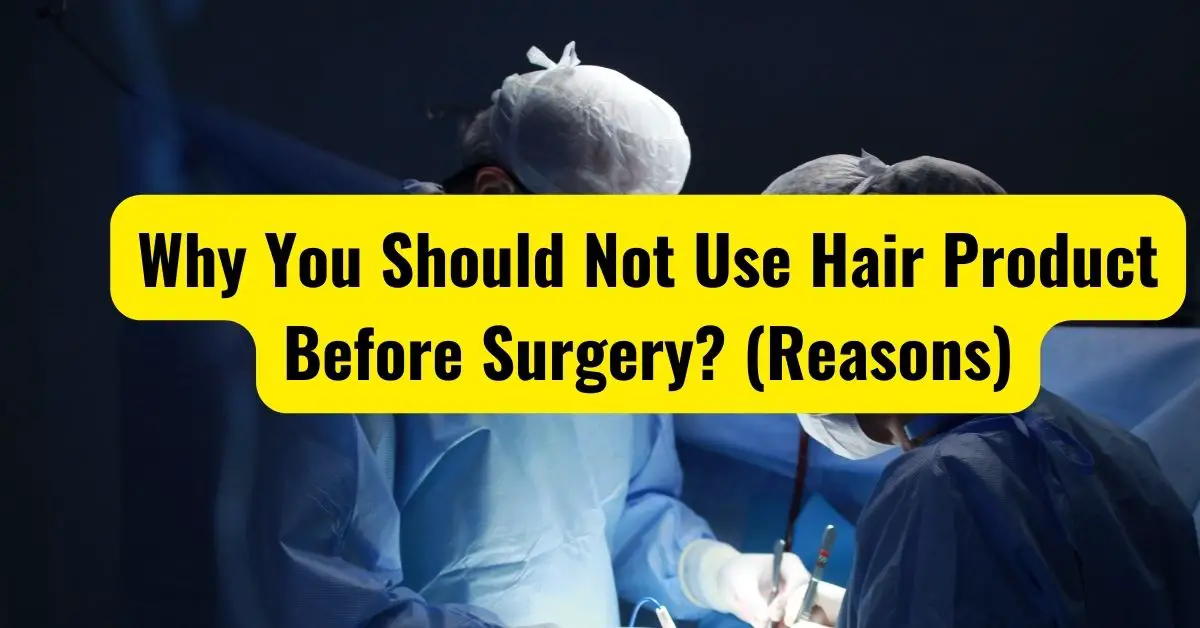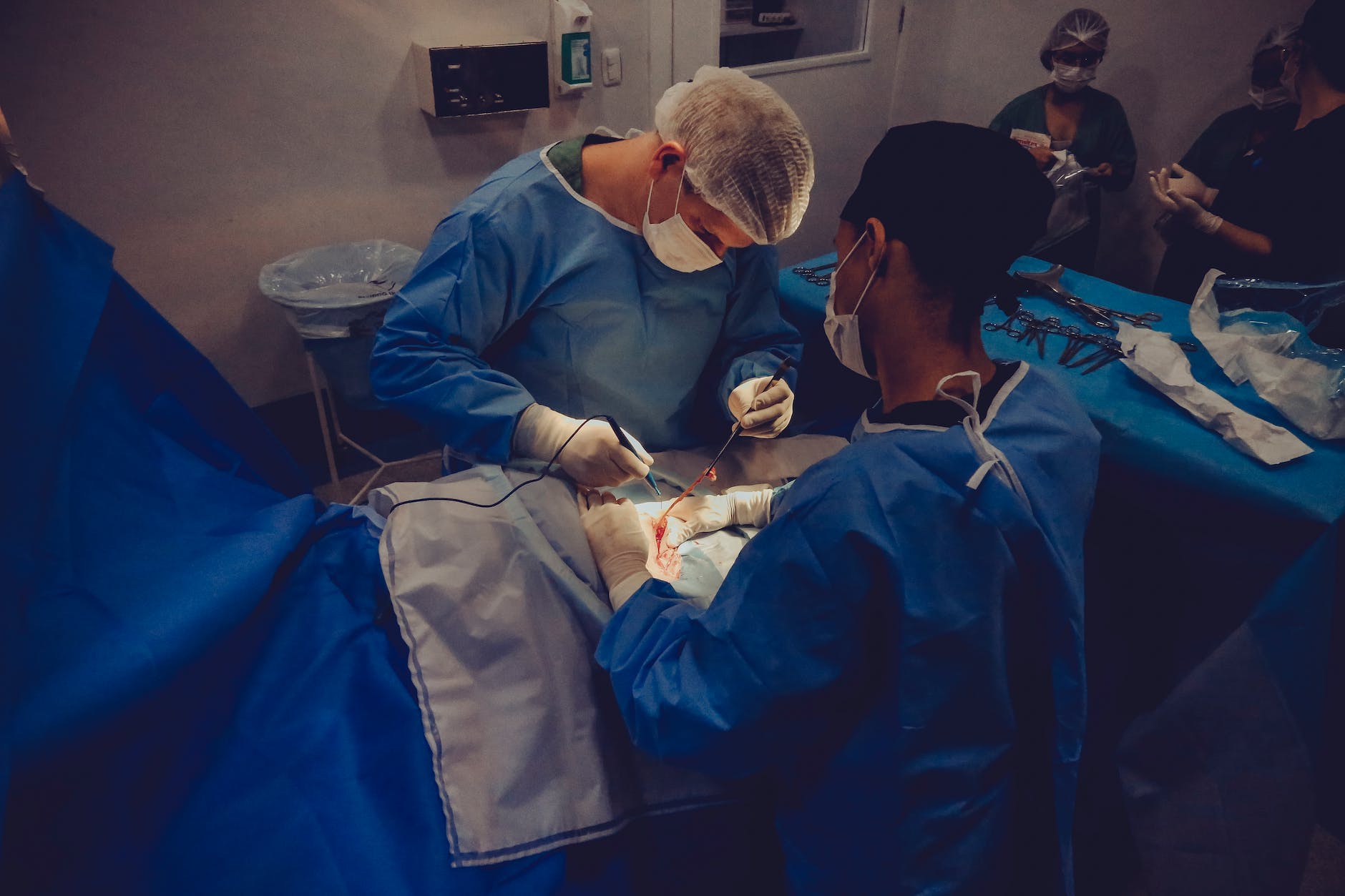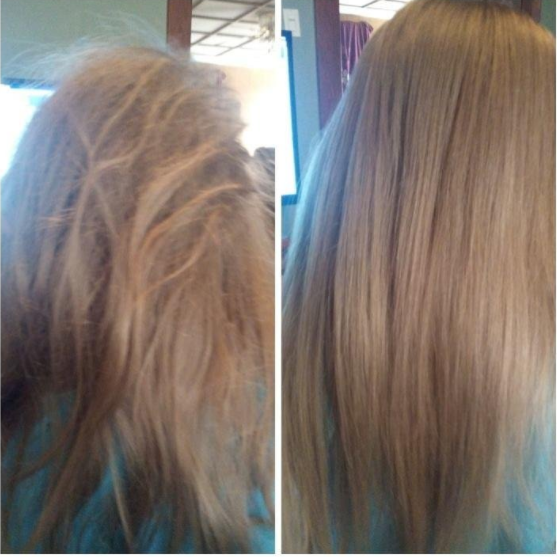Before Surgery: Why You Can't Use Hair Products & What To Know
Are you scheduled for surgery and feeling a bit overwhelmed by the pre-op instructions? Understanding the "why" behind seemingly small details, like your hair routine, can significantly contribute to a smoother and safer experience. Let's delve into the often-overlooked aspects of preparing for surgery, especially when it comes to your hair.
One of the primary directives given to patients preparing for surgery is to avoid the use of hair products. This includes a wide range of items commonly used for styling and maintaining hair. The reasoning behind this instruction is multifaceted, going beyond mere aesthetics and touching upon patient safety and the efficiency of surgical procedures.
The following table provides a comprehensive overview of the key considerations for hair care before surgery:
| Category | Details | Reasoning |
|---|---|---|
| Hair Products to Avoid | Gels, hairsprays, mousse, hair oils, serums, creams, hair glitter, decorative products, hair extensions, weaves, and wigs. | These products can interfere with the cleaning and disinfecting of the hair and scalp. They may also be flammable or cause allergic reactions. |
| Washing Your Hair | Wash hair the night before surgery using a regular shampoo. Avoid conditioner or hair masks. | Helps remove any existing products and reduces the risk of introducing contaminants into the surgical site. |
| Hair Accessories | Remove all hair accessories, including clips, pins, bands, and barrettes. | These items can get in the way during surgery and potentially interfere with monitoring equipment or create an unsafe environment. |
| Hair Styling | Wear your hair loose, or in a simple braid or ponytail. | Keeps hair out of the surgical field and facilitates ease of access for medical staff. |
| Shaving the Surgical Site | The necessity of shaving the operative site is a topic of discussion. Follow the surgeon's specific instructions. | Shaving can sometimes increase the risk of infection. Modern practices often favor clipping over shaving to minimize this risk. The surgeon's preference dictates the best course of action. |
| Other Considerations | Avoid makeup, nail polish, fragrances, lotions, and moisturizers. Bring essential personal items like glasses, contact lens case and solution, and denture cup (if applicable). | These items may interfere with equipment, increase the risk of infection or be flammable. Ensure personal comfort and convenience. |
The rationale behind avoiding hair products is multifaceted. Many hair products, such as gels and hairsprays, often contain alcohol or other flammable ingredients. In the sterile environment of an operating room, the use of cauterization tools and other potential ignition sources means that any flammable materials increase the risk of fire. Furthermore, hair products can also harbor bacteria, even after washing, which can elevate the risk of infection at the surgical site.
In addition to hair products, it is crucial to adhere to other pre-operative guidelines. Avoid eating or drinking anything after midnight the night before surgery, including water, gum, and candy. Refrain from smoking or drinking alcohol for at least 24 hours prior to the procedure. Also, it's extremely important to avoid the use of lotions, moisturizers, and hair product removal products near the surgical site, as this can increase the chances of infection.
The importance of maintaining a sterile field cannot be overstated. The surgical team's recommendations about hair care are designed to minimize any potential risks. This can also involve the specific recommendations provided by the surgeon or anesthesiologist. By following these instructions, patients actively contribute to their own safety and the success of the surgery.
The history of preoperative preparation has evolved over time. For much of the 20th century, the process included shaving the surgical site. However, modern surgical practices are increasingly moving away from routine shaving, as it can sometimes increase the risk of surgical site infections. Now, surgeons often prefer to clip hair near the surgical site to reduce the risk.
For those with longer hair, practical solutions exist. Consider braiding or tying your hair in a ponytail. This keeps hair out of the way and reduces the likelihood of accidental contamination. Remember, removing hair accessories, such as clips, bands, or pins, is a crucial step in the preparation process.
If youre still puzzled about specific directives, communicate with your surgical team. They are there to answer questions and provide clarity, especially when it comes to the details of pre-operative preparation. By ensuring your hair is properly prepared, you are taking a vital step toward a safer and more positive surgical experience.
Other important pre-surgery considerations include:
- Avoid all substances of abuse.
- Adhere to all dietary restrictions.
- Follow recommendations regarding medications.
- Ensure you have arranged transportation.
- Prepare for post-operative care.
Following these recommendations are designed to ensure that the surgical environment is as clean and safe as possible. It also helps to enhance the effectiveness of anesthesia, allowing for a smoother procedure and a more comfortable recovery.
While these guidelines might seem like minor points, they demonstrate a commitment to patient safety and the optimization of surgical outcomes. Your cooperation with these instructions, from the simple step of washing your hair the night before to the careful removal of accessories, helps to create the best possible environment for a successful operation and a swift, healthy recovery.
For more detailed information, consult the following resource:
Mayo Clinic: Preparing for Surgery



